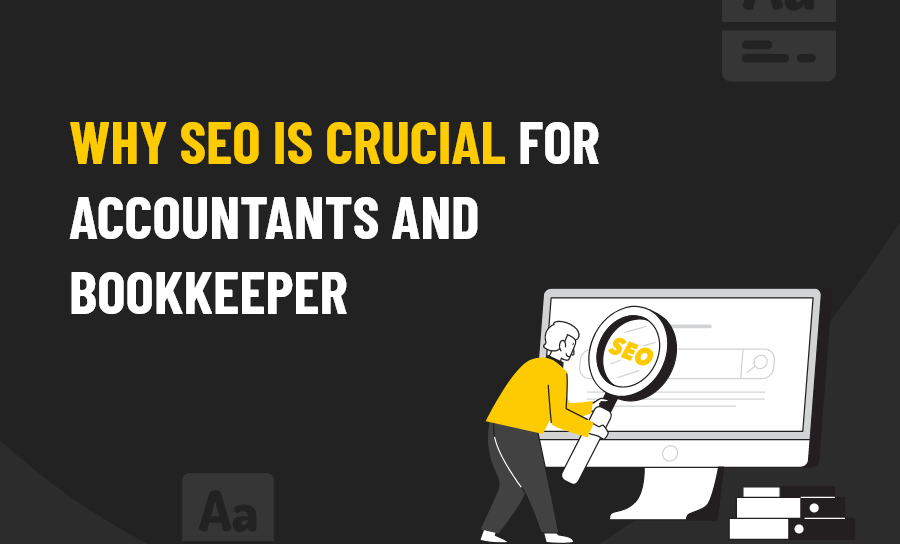Search engine optimization (SEO) is important when it comes to marketing. If you just want to grow your customer base, you must understand SEO.
Small companies now have more alternatives than ever before when it comes to hiring someone to handle their bookkeeping and accounting needs. It is easier for potential clients to access your site first if you rank higher in search engines than your rivals.
You may be cautious, especially if you’ve tried traditional marketing before. Maybe you didn’t get much of a profit on your money. SEO, on the other hand, is a lot more progressive than traditional advertising. To be successful, you wouldn’t need a large budget.
Accounting automation is a competitive landscape, and getting on top of the SERPs is an uphill battle. This blog will help you understand the most important things you need to know before setting up your SEO strategy. So, let’s dive in!
WHAT IS SEARCH ENGINE OPTIMIZATION (SEO)?
Making a website attractive to Search engine and other internet search engines is what SEO is all about. Whenever anyone searches for words relating to your profession, you want to be one of the top websites listed. The higher your site ranks in search engine results pages (also known as SERPs), the more visitors it will likely receive. Visitors can also be turned into paying customers.
Search engines have a lot of moving parts. Search engine robotic systems, also known as “crawlers” or “spiders,” crawl the internet. They gather data from every publicly available website. This is referred to as “indexing.”
When someone types a phrase into a search engine, it processes all of the indexed data and generates a web page of results. Google and other search engines strive to place the most relevant and trustworthy sites at the top of search engine results pages (SERPs).
GOOGLE'S PERSPECTIVE ON THE INTERNET
If you would like to study accounting software for small business, you must first understand what Google expects of you. The web, according to the company’s idea, is a platform where information can be freely distributed.
This mentality may appear to be at odds with your website’s objectives. Many business owners perceive their website as a way to attract new customers rather than as a way to educate people.
However, as you become more knowledgeable about SEO, you’ll realize that offering useful material is a terrific approach to attract new clients.
You can amaze search engine crawlers & site visitors by providing useful material on your website. You’ll improve your search engine rankings as well as draw attention to your expertise among potential consumers.
Let’s go over some of the major ideas in this book before we get into the technicalities of SEO:
Relevance
When consumers search for keywords related to your company, you’ll like your website to come up first. As a result, it’s critical to be specific about the services you provide, the industries you serve, and the accounting software you use. This will also help the user’s search intent meet the results shown on Google. Your website ought to be straightforward and simple to navigate. This way, search engine crawlers will know exactly what it’s for. And future clients will be able to see how you can assist them.
Authority
Sites that are experts on a specific topic tend to rank higher than those that aren’t. You should make an effort to portray oneself as an authority on all of the issues that are pertinent to your practice. Later on, you can share these topics as part of your email marketing for startups, for example, or turn them into videos.
Quality
Visitors should have a good time on your site and get a decent response to their keyword search. If your site is of poor quality, it will repel both humans and search engine crawlers.
Other search engines, such as Yahoo & Bing, may operate in somewhat different ways than Google, but the principles remain the same. What works for just one also should work for others when it comes to SEO.
CONTENT REIGNS SUPREME
Good SEO necessitates the creation of excellent content on a regular basis. The material on your site should highlight your firm’s specialties, keeping in mind the search terms that bring visitors to your site.
Page text, postings, blogs, videos, case studies, and infographics are all examples of content. It can be anything that adds value to visitors and is search engine friendly.
These guidelines should drive your content strategy:
Publish Regularly
Regularly updating your site informs Google that it is still live. Don’t let so many times pass between changes because content soon becomes stale.
Make Material that is Pertinent to Your Company
Stick to your expertise & make sure your material makes sense to your target audience. You risk confusing the search engine algorithms if you move too far from your main area of expertise.
Make Your Own Content
Your site’s material should not be found elsewhere on the internet. Never copy text from another website and paste it into your own. It may result in a Google penalty, causing your site to fall in the search ranks. It could also land you in hot water if you infringe on someone else’s copyright.
IMPORTANCE OF SEO
Backlinks (links from other websites to your own) are extremely important for SEO. As previously stated, Google considers the internet to be a platform for the sharing of important data. The vehicle for this communication is linked.
When a website links to another, it’s effectively saying, “Check out this website, it has a lot of useful material on this subject.” Remember, you would like to be known as an expert in your firm’s areas of expertise. Inbound links are votes of confidence in a certain authority.
Having a large number of inbound links is useful, but a single connection from a high-quality, high-traffic website is even better. Search engines are aware of the differences between websites in terms of quality, relevancy, and authority. As a result, they place a higher value on links from well-known websites.
An inbound link from one of the following, for example, would be more valuable than lots of links from unrelated blogs or websites:
- a prominent news organization
- a well-known accounting website
- prominent expense management software
- a magazine that is beneficial to your customers
Inbound links from prominent websites, on the other hand, are difficult to come by. As a result, any emails you receive from lesser-known sites should be welcomed as well.
Conclusion
You’ll come across a variety of link-building tactics as you learn more about SEO. Employ caution when choosing which ones to use. Many of Google’s recent algorithm changes have been prompted by low-quality and over-used to link techniques.








